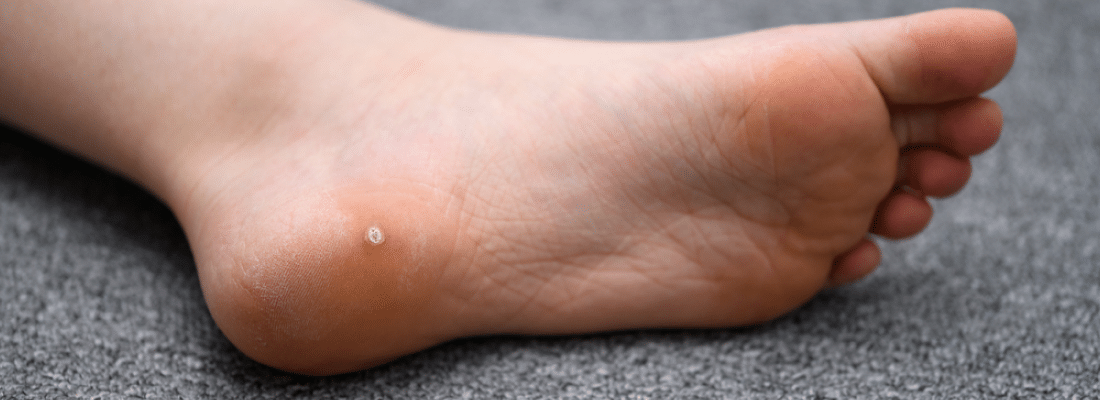Plantar Warts

Plantar Wart Description
Plantar warts are warts that develop underneath the feet, caused by a viral infection in the top layer of the skin. Warts cause irritation and minor pain depending upon the affected location. Plantar warts are generally small, but can be bigger as well. They sometimes grow in clusters known as mosaic warts. Warts indirectly spread from person to person. Plantar warts can go without treatments but if they disturb you then they can be treated in a variety of ways. There are home remedies, but a podiatrist can give the right treatment right away.
Tips for Plantar Wart Prevention
Plantar warts are more common in children than adults. They are also common in people who have poor or weak immune systems. To reduce the risk of plantar warts try to avoid direct contact with warts. Do not pick or scratch and keep your feet clean and dry. Change your shoes and socks daily and wash your hands properly after touching the affected area. Try to avoid walking barefoot in gyms, pools, or communal showers. Plantar warts can cause you pain and may also cause muscle discomfort, in such a case immediate treatment is recommended.
When To Visit A Doctor
You must visit a doctor if warts cause discomfort in performing activities or if you have tried treating warts but it multiplies or occurs repeatedly. Conservative treatments like medications in the form of topical gels, creams, and ointment lotions are explored before recommending surgery. Treatments include freezing warts with liquid nitrogen or removal by laser or surgery. The process may also include injections to strengthen the immune system and clear all the viruses present in the body.
Frequently Asked Questions
Q: What is the fastest way to get rid of a plantar wart?
A: Fast methods for getting rid of plantar warts include cryotherapy and salicylic acid peeling medicine. Immune therapy, laser treatment, and minor surgery are also options to consider. A podiatrist can recommend the best treatment on a case-by-case basis.
Q: Are plantar warts an STD?
A: While plantar warts are caused by a variety of HPV (there are over 100 kinds), they are not sexually transmitted. Plantar warts form when HPV enters your body through tiny cuts or breaks in the bottom of your foot.
Q: Are plantar warts a serious condition?
A: Most plantar warts are not serious health concern. Plantar warts can worsen and spread if not treated. If they interfere with activities, become irritated/painful, or if you are also diabetic, you should visit a podiatrist.
Q: How do you get rid of a plantar wart on your foot?
A: There are many options for plantar wart removal and treatment. Cryotherapy, salicylic acid peeling medicine, immune therapy, laser treatment, and minor surgery are all treatments a podiatrist may recommend.
